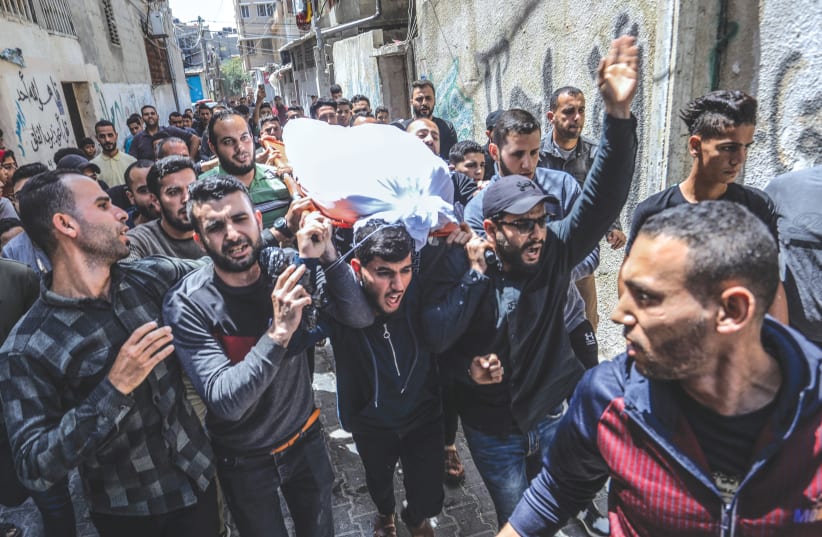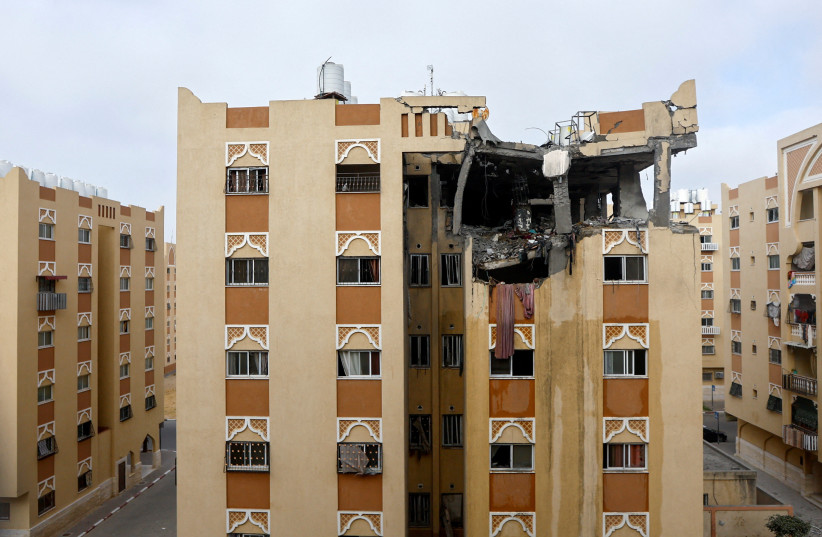Before the recent targeted killings of senior jihadists, the heads of the municipalities in the south harshly criticized the government’s soft response, but now they are praising its resolve. They promise that their locals will stand firm and give the IDF the full amount of time necessary to achieve long-term security and calm. Unfortunately, this hope is nothing but an illusion, which the targeted killings helped to amplify.
The operation, impressive and justified as it may be, has perpetuated the false expectation that the Israeli government has a formula to eradicate the terrorist threat originating in the Gaza Strip. As though all that is needed to achieve this goal is to give the IDF the time and freedom of action to win.
Deterrence for limited time
The frustrated residents of the south do not get to hear the agonizing truth from their local and national leadership: We succeed in deterring the Palestinian side only for limited periods of time and so the next round of violence is already in the cards. Our leaders strive to manage the Gaza challenge and the broader Palestinian conflict, not to solve it.
The Israeli government does not intend to adopt radical proposals from either the Right or the Left: We will not reoccupy the Gaza Strip, nor will we seriously and persistently deal with the roots of Palestinian hostility.
This deep hostility was described without any propaganda cover-up by a leader who did not hesitate to tell his people what was in his heart. It was Moshe Dayan as IDF chief of staff who, in 1956, delivered the eulogy at the funeral of Roi Rotberg, a member of Kibbutz Nahal Oz who was murdered by Palestinian terrorists.
Dayan truthfully explained the source of the burning hatred of Gaza Strip refugees toward us, “Before their eyes we have been transforming the lands and the villages where they and their fathers dwelt into our estate.”
The population of the Gaza Strip has increased dramatically since Dayan’s speech; the density is enormous, the poverty is abject, most of the young people are unemployed, the water is polluted, and more than half of the population depends on international aid for its sustenance.
The roots of the hatred that motivated Roi Rotberg’s murderer remain. The killing of the jihad commanders is justified, but it does not eradicate these roots, it nurtures them. The place of the dead will soon be taken by their heirs, and so on and so on.
The 67 years that have passed since Dayan’s speech have taught us that it is not possible to “lock the gates of the Gaza Strip and throw the key into the sea.” Ariel Sharon’s move to disengage proved that we can leave the Gaza Strip but the Gaza Strip will not leave us.
Many of us believe that we must recognize that the conflict is not solvable and accept the recurring rounds of violence as part of our daily routine. But there are also those among us who still wonder if there is an alternative to that bleak script. Dayan’s eulogy answer was gloomy, “This is our life’s choice: to be prepared and armed, strong and determined, lest the sword be stricken from our fist and our lives cut down.”
One must not lose sight of the distant goal
I am writing these lines in fragments because of the phone calls I receive from my daughter and grandchildren from time to time, who are currently in a bomb shelter in the south. It is precisely at these moments that the words of Shimon Peres, with whom I worked for many years, comes to my mind.
He used to say that even in moments of crisis, one must not lose sight of the distant goal we are striving to reach. In the face of the pessimists who are convinced that there is no way out and that we are forever destined to kill and be killed, Peres would say, “With one hand we must hold firmly a deadly sword, but with the other hand we must wave the banner of peace and neighborliness.” We must prove with significant and continuous measures that although our sword is strong and sharp, our heart is open and our hand is sincerely extended in peace. In this way, we will strengthen those on the Palestinian side who prefer reconciliation and compromise.
The internal battle there is expected to be long and brutal, but our own duty is to give hope to those who desire peace. After all, isn’t it our dream, as well?
The writer, a former director-general of the Foreign Ministry, is a senior fellow at the Jewish People Policy Institute (JPPI). His novel Toronto Junction was recently published by 2sfarim Publishing.

